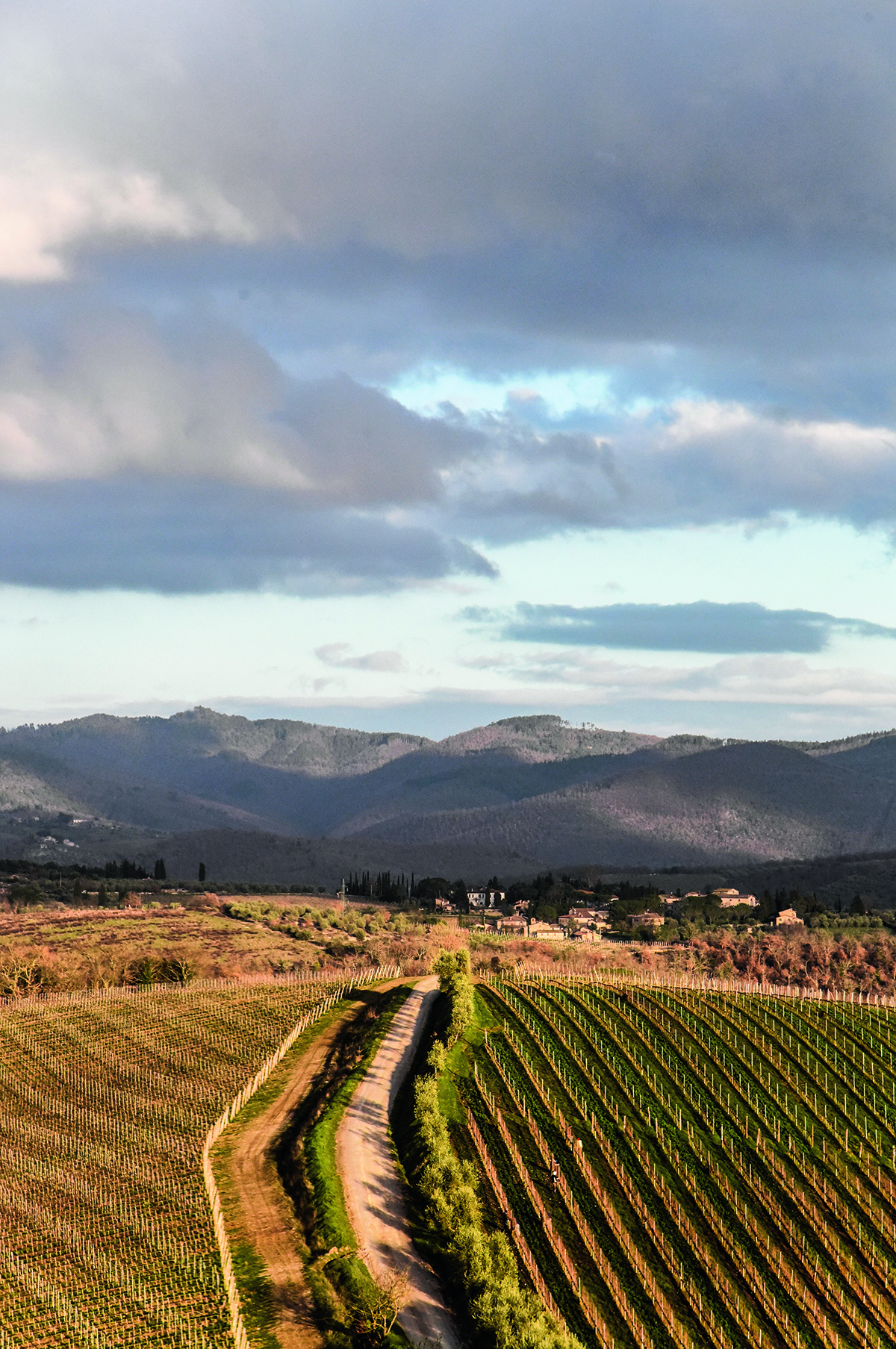
Dievole is surrounded by the endless green and gold hills of Tuscan legend. Photograph by Marco Badiani
The second half of our journey through Tuscany takes us to Dievole, a luxurious wine resort in the heart of the region’s famous rolling hills
Where
On a ridge surrounded by vineyards, olive groves and forests, in a wild part of Tuscany just 20 minutes’ drive from Siena.
The arrival
Dievole is surrounded by the endless green and gold hills of Tuscan legend. Arriving from Florence, you divert south towards Siena and turn northeast along a winding country lane, great houses appearing suddenly on hilltops, wild boars popping out of the vineyards. This is not a highly touristed part of Tuscany, you feel you are a visitor among locals, yet it is easy to get to Siena and the villages on the Chiantigiana trail. The last part of the journey takes you down a dust track to a tidy car park at the back of imposing stone buildings; there is also an old chapel opposite the pleasant reception office.
Follow LUX on Instagram: luxthemagazine
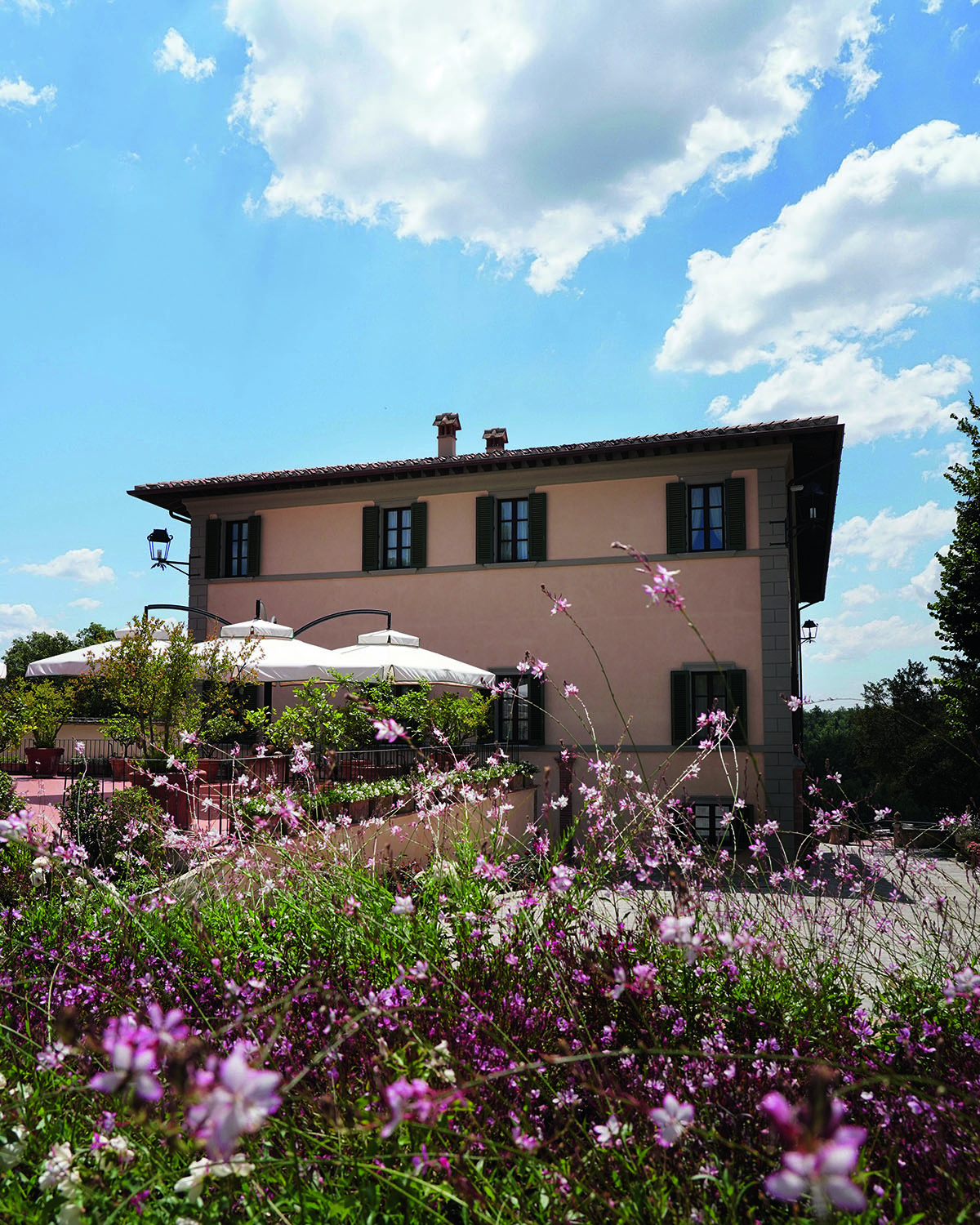
The Dievole winery and hotel. Photograph by Alexandra Korey
The views
This is deepest northern Tuscany, the land of Chianti and olives. The hotel’s main pool has an infinity edge overlooking vineyards and a forest in the valley; forest and vineyard extend for miles up ridges and down dells. There is another pool of equal size on the other side of the hotel. Above the pools and below the main buildings are grassy gardens where you can sit and have lunch or a drink on a wonderfully casual scattering of garden furniture. The formal terrace, for breakfast and dinner, sits behind one of the gardens and has a symphony of cicadas at night time.
Read more: Professor Peter Newell on why the wealthy need to act on climate change
The rooms
Modern Tuscan chic without trying too hard: high ceilings, plenty of marble and space. Some rooms have the same views as the pool, others look more inwards, but all are generous, genuine, authentic and light.
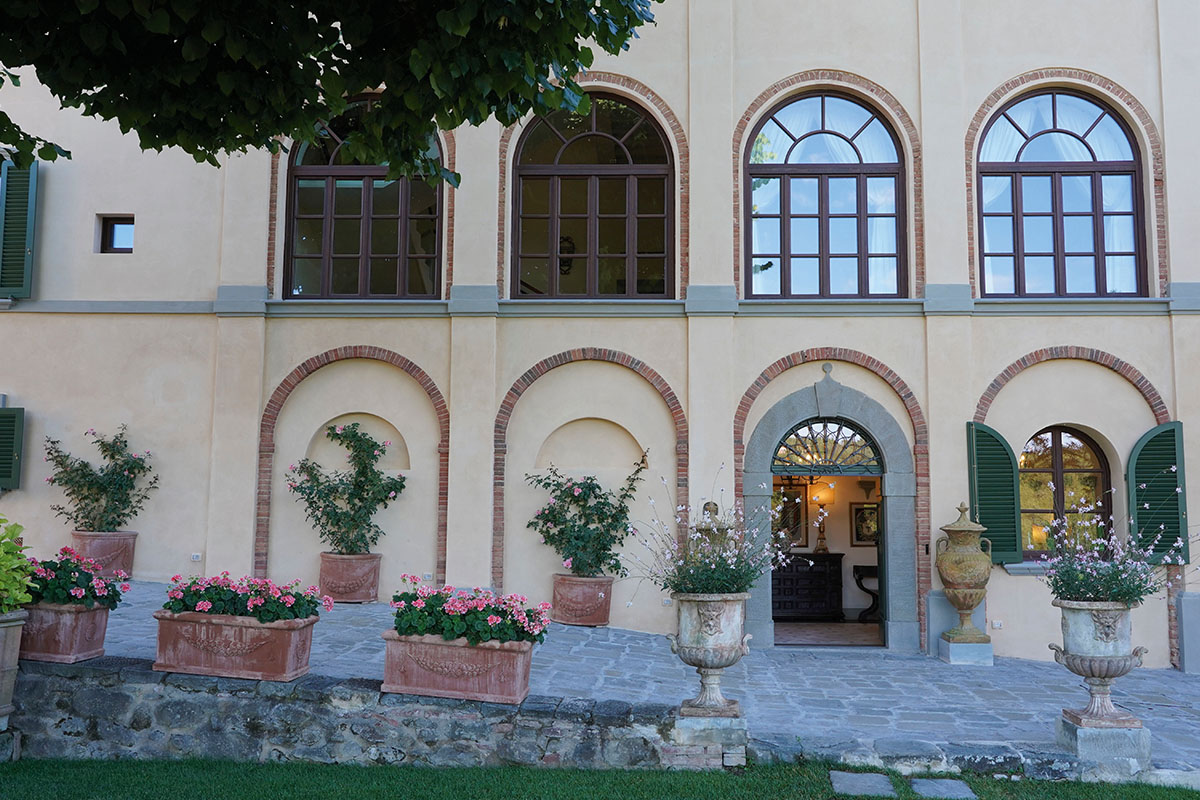
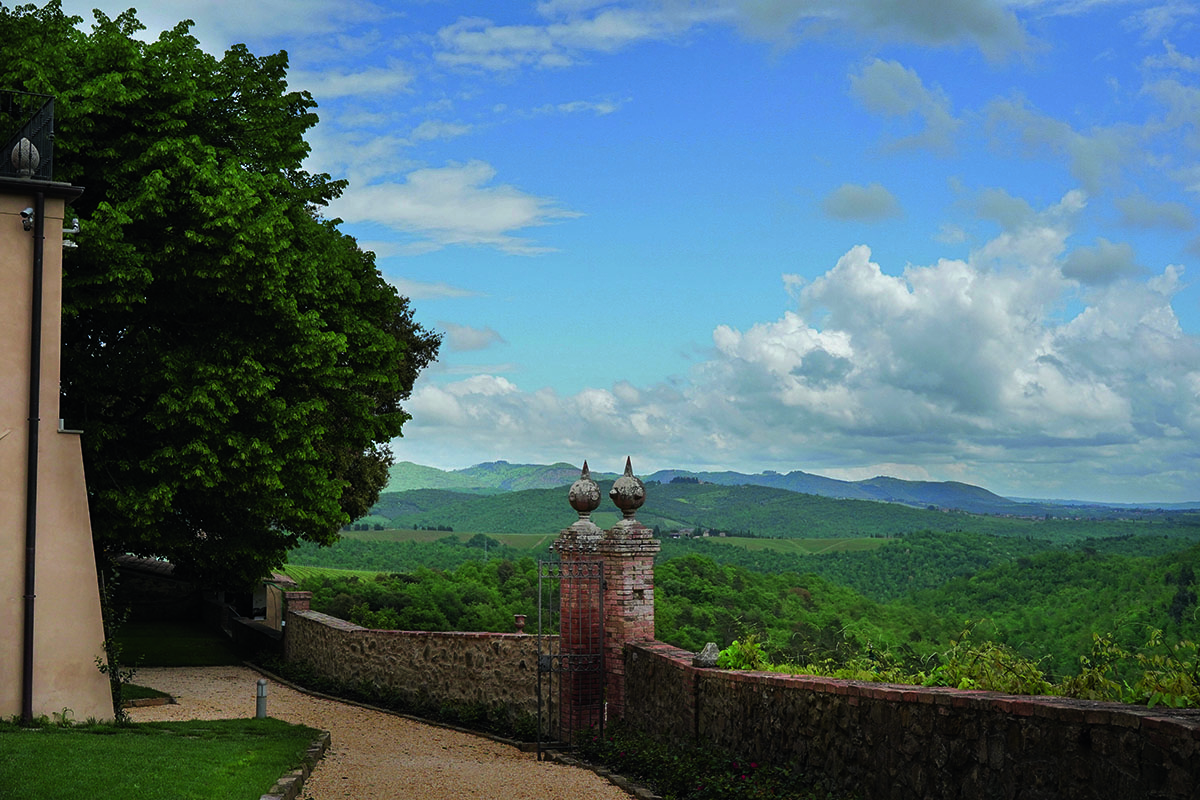
The entrance to the villa (top) with views across the estate’s vineyards vineyards and the northern Tuscan landscape. Photographs by Alexandra Korey
Wining and dining
Breakfast is the standard Italian luxury fare of a buffet biased towards fruits and cheeses. Lunch was our favourite meal here, just sitting at a table on the lawn above the low wall, beyond which the ground dropped down into the valley below. The nearest other guest was 20 metres away; indeed, Dievole is a magnificent place for not feeling on top of anyone. For lunch, our favourite pick was a grilled turkey breast with a salad of local tomatoes, whose punchy flavours went with the flavours of the air.
Within a 20km radius of Dievole are some of the top wineries of the region and the hotel’s relaxed, professional staff seemed happy for us to sample their wares during lunch. Dievole’s own wines are served at the restaurant during dinner. Not as famous or profound as other local wines, theirs were well priced and a good accompaniment to the food.
The highlight
The views changing colour and texture daily; and the staff, who made things run beautifully without ever falling into the old Italian trap of getting in the way too much. Tuscany for true connoisseurs.
LUX rating: 9/10
Book your stay: dievole.it
This article originally appeared in the Summer 2021 issue.


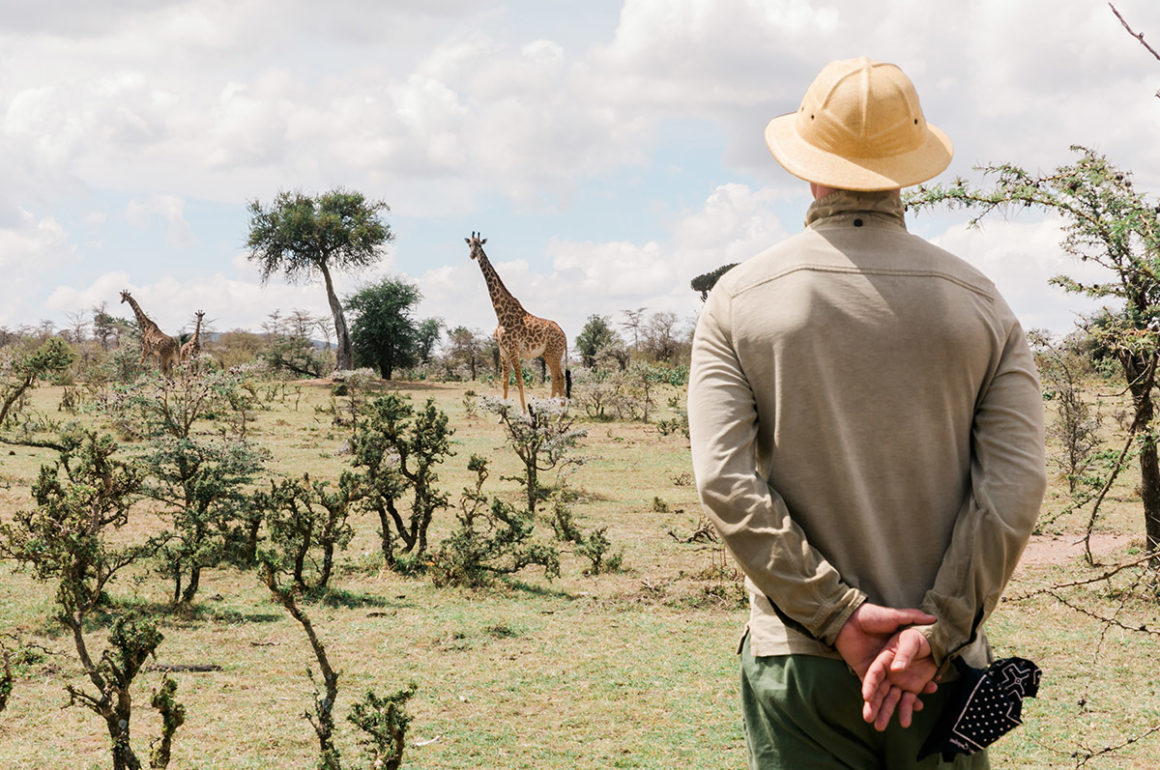
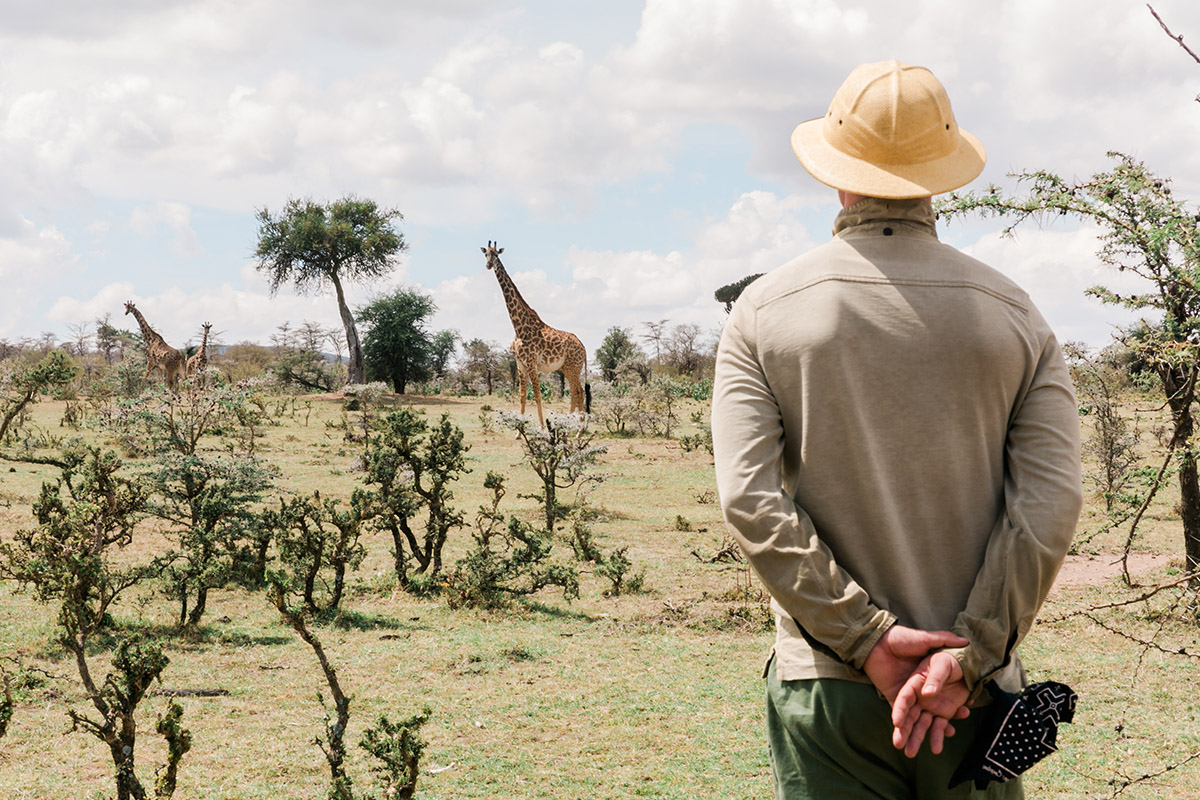

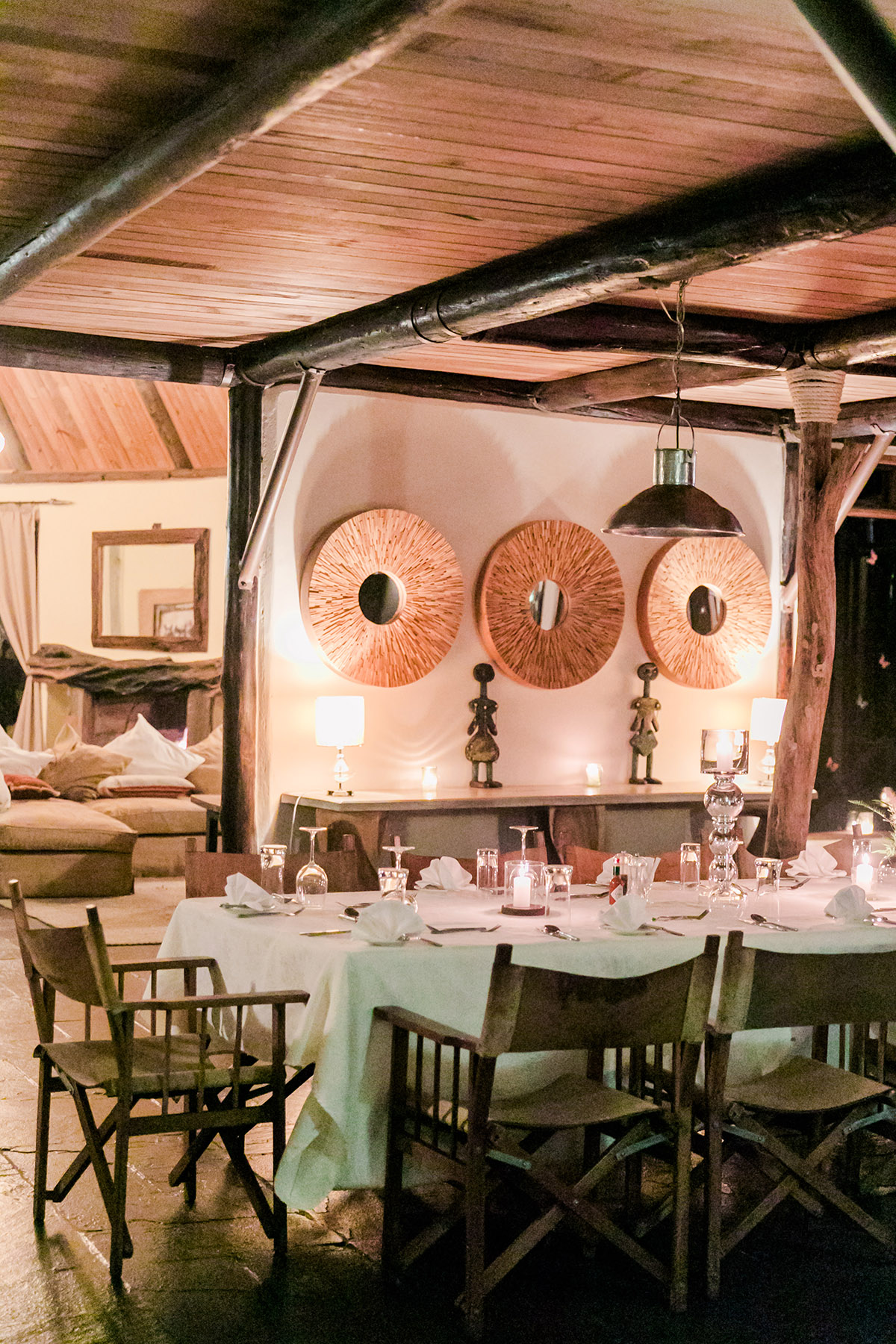
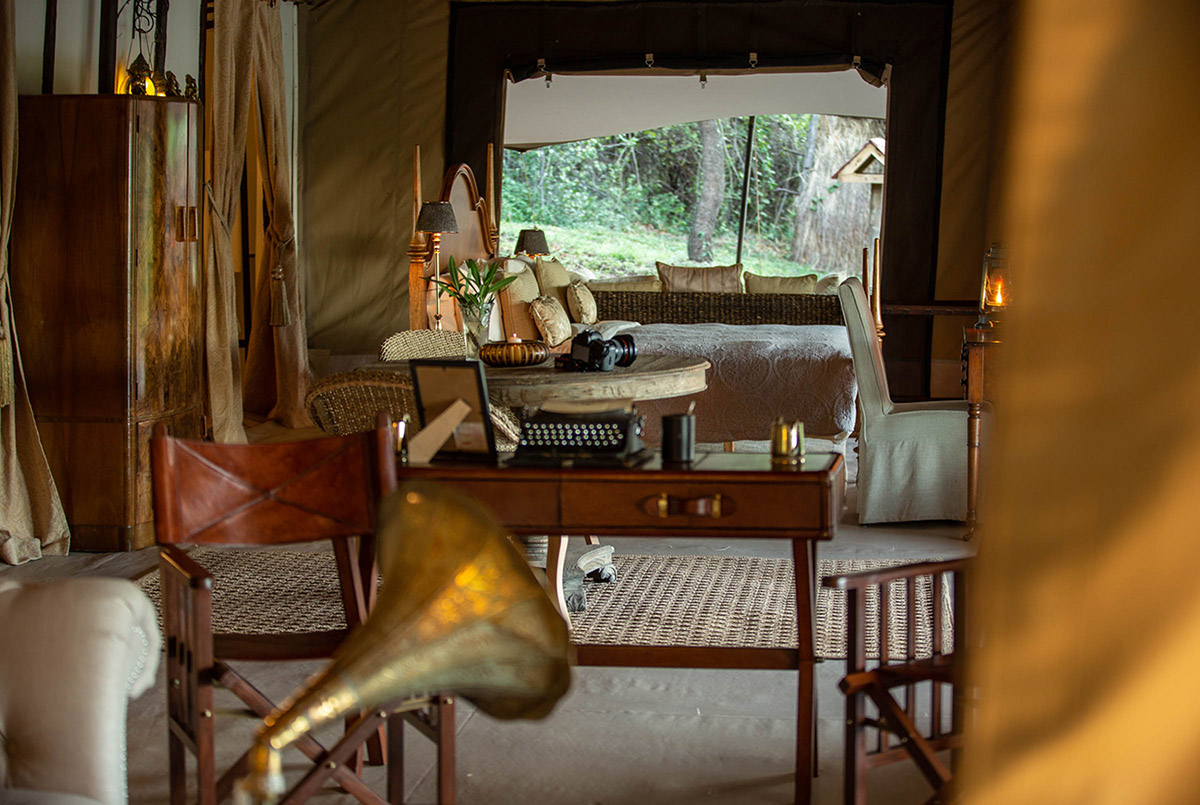




Recent Comments